Website: https://allphoto-kyoto.com/
Estimated reading time: 10–12 minutes
Keywords: Kyoto kimono photography, kimono in rain, Kyoto rainy day photos, kimono photoshoot Kyoto, rainy Kyoto experience
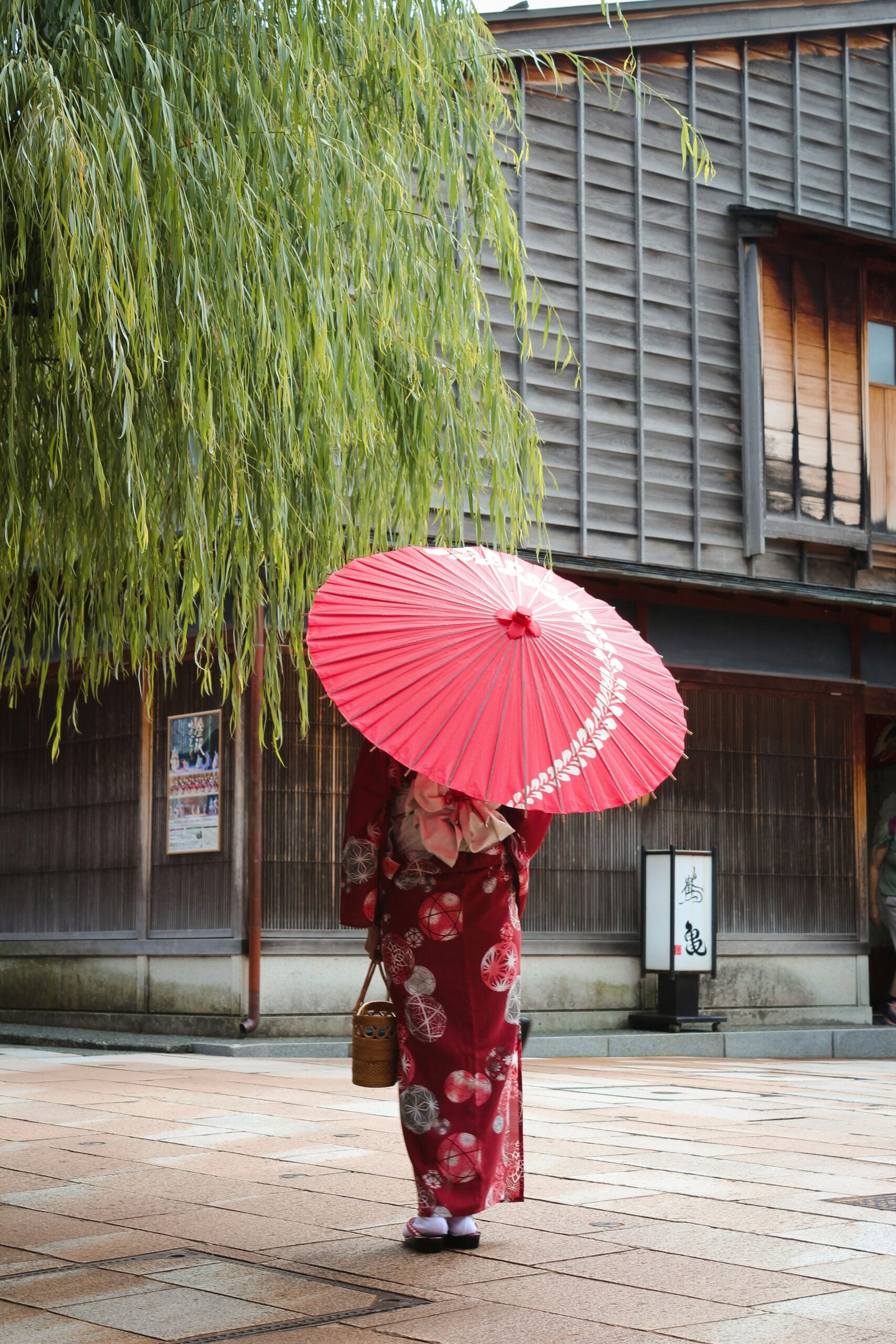
- Introduction: When the Rain Paints Kyoto in Silver
- 1. Why Rain Enhances the Kimono Experience
- 2. Choosing the Right Kimono for a Rainy Day
- 3. The Most Photogenic Rainy Spots in Kyoto
- 4. How to Prepare for a Kimono Photoshoot on a Rainy Day
- 5. The Emotional Power of Cloudy-Day Photography
- 6. Tips for Posing Naturally in the Rain
- 7. What to Do After Your Photoshoot
- 8. Why Choose AllPhoto Kyoto for Rainy-Day Shoots
- 9. Final Thoughts: Let Kyoto’s Rain Tell Your Story
Introduction: When the Rain Paints Kyoto in Silver
There’s a quiet magic that descends over Kyoto when it rains. The glossy cobblestones of Gion reflect the soft glow of paper lanterns, and the ancient pagodas shimmer beneath the mist. For locals, a rainy day is a reason to slow down. For visitors, it’s an opportunity to witness a side of Kyoto that most never see — serene, intimate, and timeless.
And when you wear a kimono on a cloudy day, that magic deepens. The contrast between vibrant silk patterns and the silver-grey atmosphere creates some of the most poetic photographs imaginable.
At AllPhoto Kyoto, we believe that cloudy or rainy weather is not a reason to cancel a kimono photoshoot — it’s a chance to capture Kyoto at its most authentic.
1. Why Rain Enhances the Kimono Experience
Many travelers worry that a cloudy or rainy forecast will ruin their plans for a kimono day. The truth is quite the opposite. Rain brings out a new kind of beauty — one filled with contrast, reflection, and emotion.
a) Natural soft lighting
On a sunny day, strong shadows can hide details of your kimono or create harsh lines on your face. Cloudy skies act like a giant softbox, diffusing the light evenly. This creates a gentle glow that flatters every skin tone and makes kimono colors pop naturally — no filters needed.
b) Wet streets, cinematic reflections
When Kyoto’s stone paths and wooden alleys glisten with rain, they mirror the lanterns and umbrellas above. These reflections add depth and a dreamlike effect to photographs, turning a simple moment into a cinematic memory.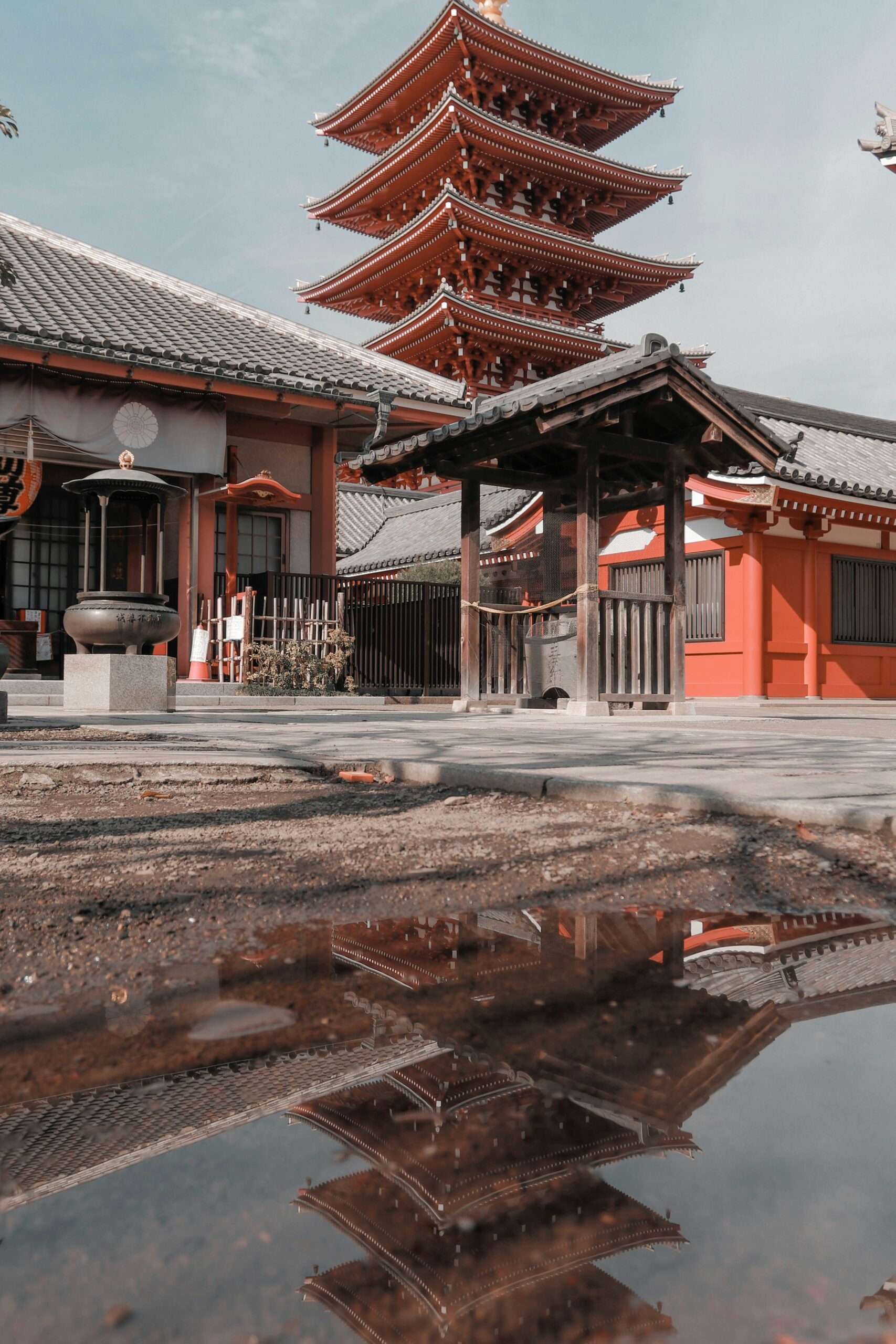
c) The quiet charm of empty streets
Rain tends to drive crowds away. That means famous photo spots like Yasaka Pagoda, Shirakawa Canal, and Hanamikoji Street feel almost private. You can walk through Kyoto’s most iconic locations in peace — and your photos will look like scenes from a film.
2. Choosing the Right Kimono for a Rainy Day
Selecting the right kimono for a cloudy or rainy day isn’t just about staying dry — it’s about enhancing the atmosphere.
a) Colors that shine in the rain
Dark backgrounds and cool lighting make bright and pastel tones stand out beautifully. Try soft pinks, lavender, ivory, or even turquoise. Patterns with flowers or raindrops can feel especially poetic.
b) Fabrics and comfort
If possible, choose a synthetic kimono or one made for daily wear (komon style). These dry faster and resist moisture better than formal silk. A short-sleeved inner layer (juban) keeps you cool even with a rain cape.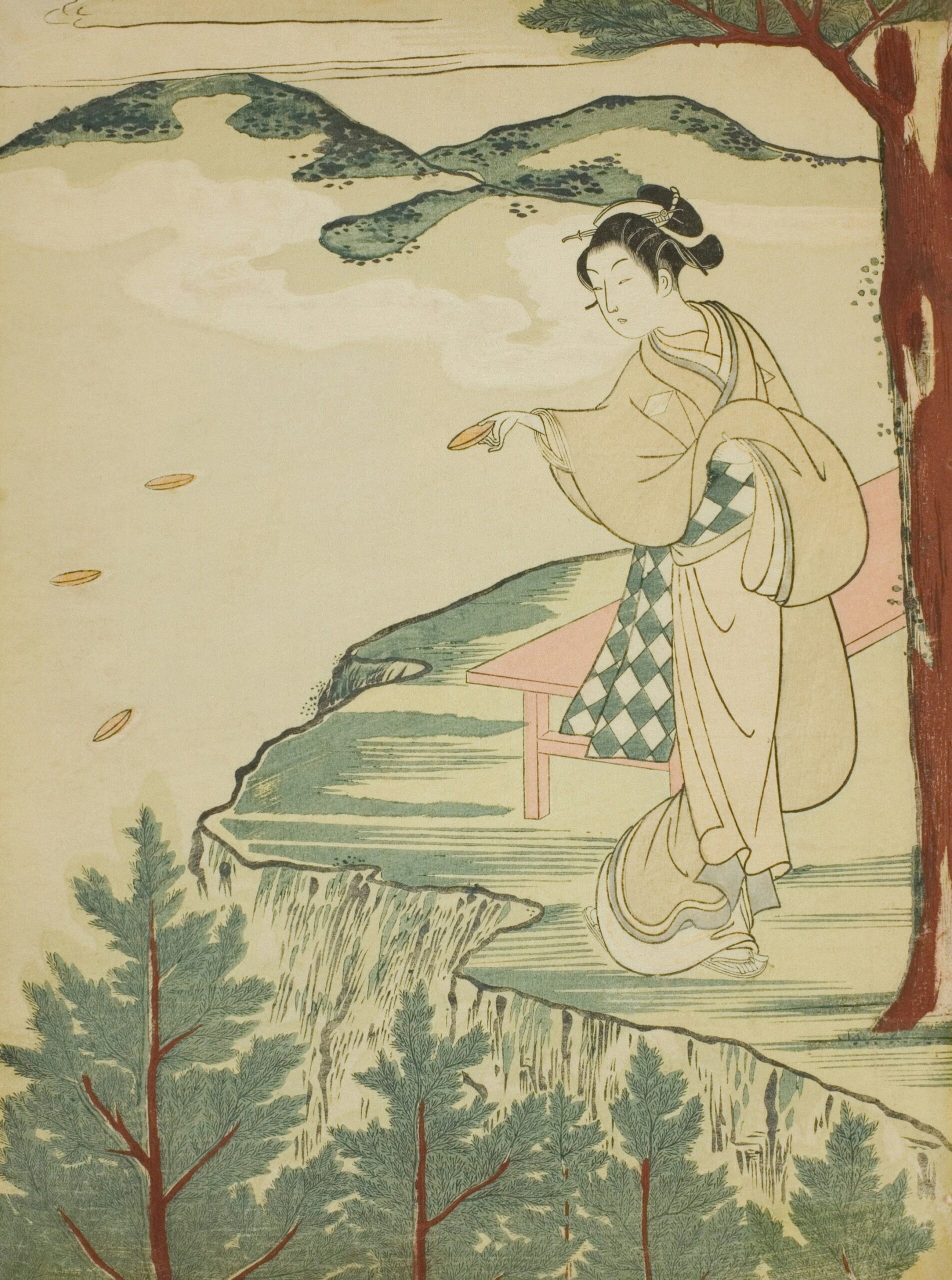
c) Accessories for elegance and protection
Wagasa (Japanese umbrella): A traditional paper umbrella adds instant charm and color contrast.
Zōri sandals with tabi socks: Wear water-resistant soles to keep your feet dry.
Rain shawl or cape (amigasa): Protects your kimono from droplets without hiding its design.
At AllPhoto Kyoto, we provide guidance on kimono styling and accessories based on the weather, ensuring you look flawless no matter the conditions.
3. The Most Photogenic Rainy Spots in Kyoto
a) Gion District
Nothing captures Kyoto’s old-world beauty like Gion after rain. Wooden machiya houses glisten with moisture, lanterns flicker against the mist, and the sound of geta sandals echoes softly on wet pavement.
Perfect for: Portraits, romantic couples, traditional umbrella shots.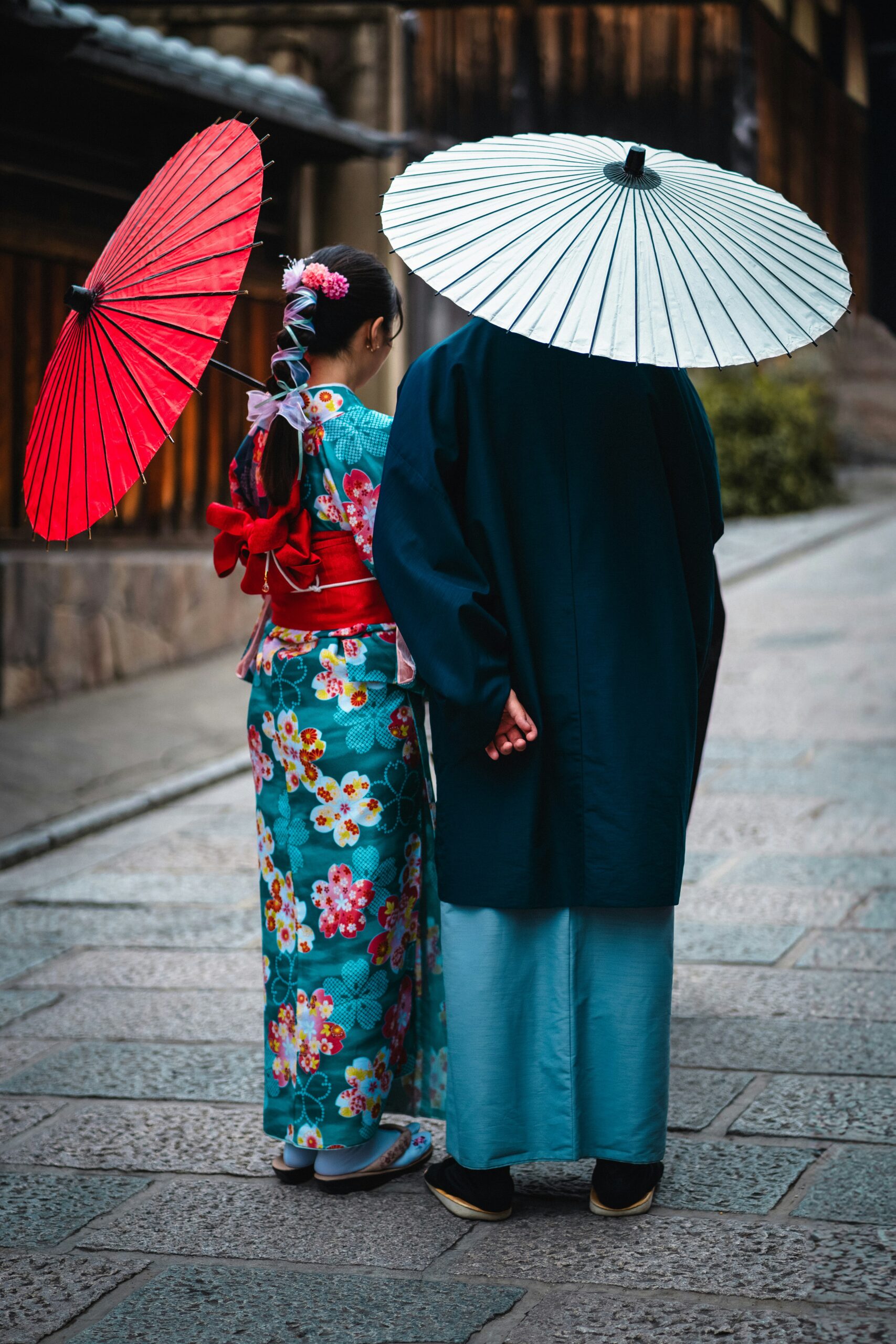
b) Yasaka Pagoda
One of Kyoto’s most famous symbols, Yasaka Pagoda rises dramatically against the grey sky. The wet stones of the Ninenzaka and Sannenzaka slopes below it shimmer like mirrors, creating perfect symmetry for reflection shots.
Perfect for: Dramatic full-body kimono portraits.
c) Shirakawa Canal
Lined with willow trees and tea houses, Shirakawa Canal becomes ethereal when it rains. The soft ripples of the water reflect kimonos and umbrellas beautifully.
Perfect for: Candid walking shots or “lost in thought” moments.
d) Fushimi Inari Taisha
Even under the rain, the torii gates glow in orange-red brilliance. The contrast between the wet stone path and vermilion gates makes photos look surreal.
Perfect for: Dynamic compositions and motion shots.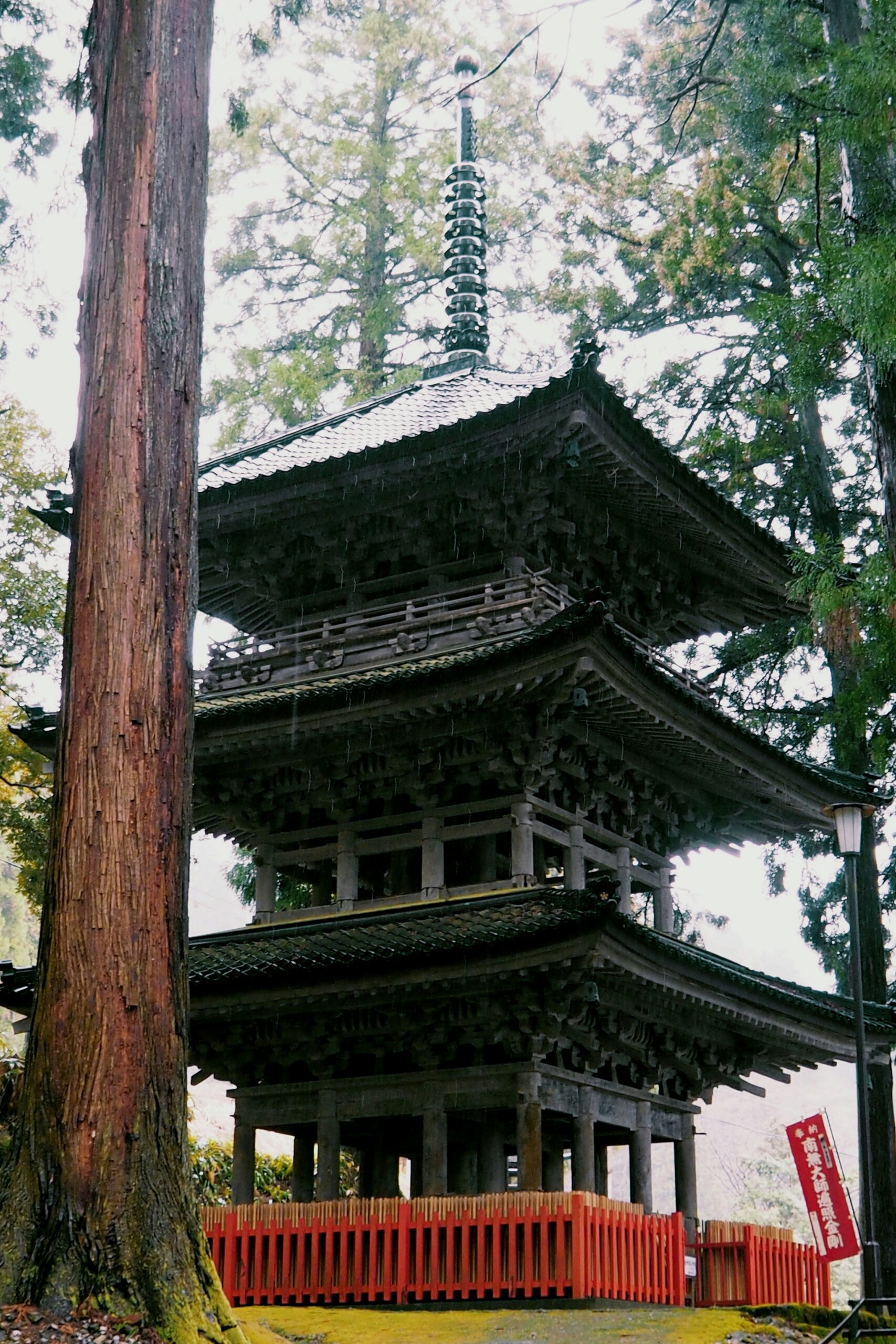
e) Arashiyama Bamboo Grove
Morning mist often rolls through the bamboo forest after a light rain, wrapping everything in green serenity.
Perfect for: Mystical kimono silhouettes.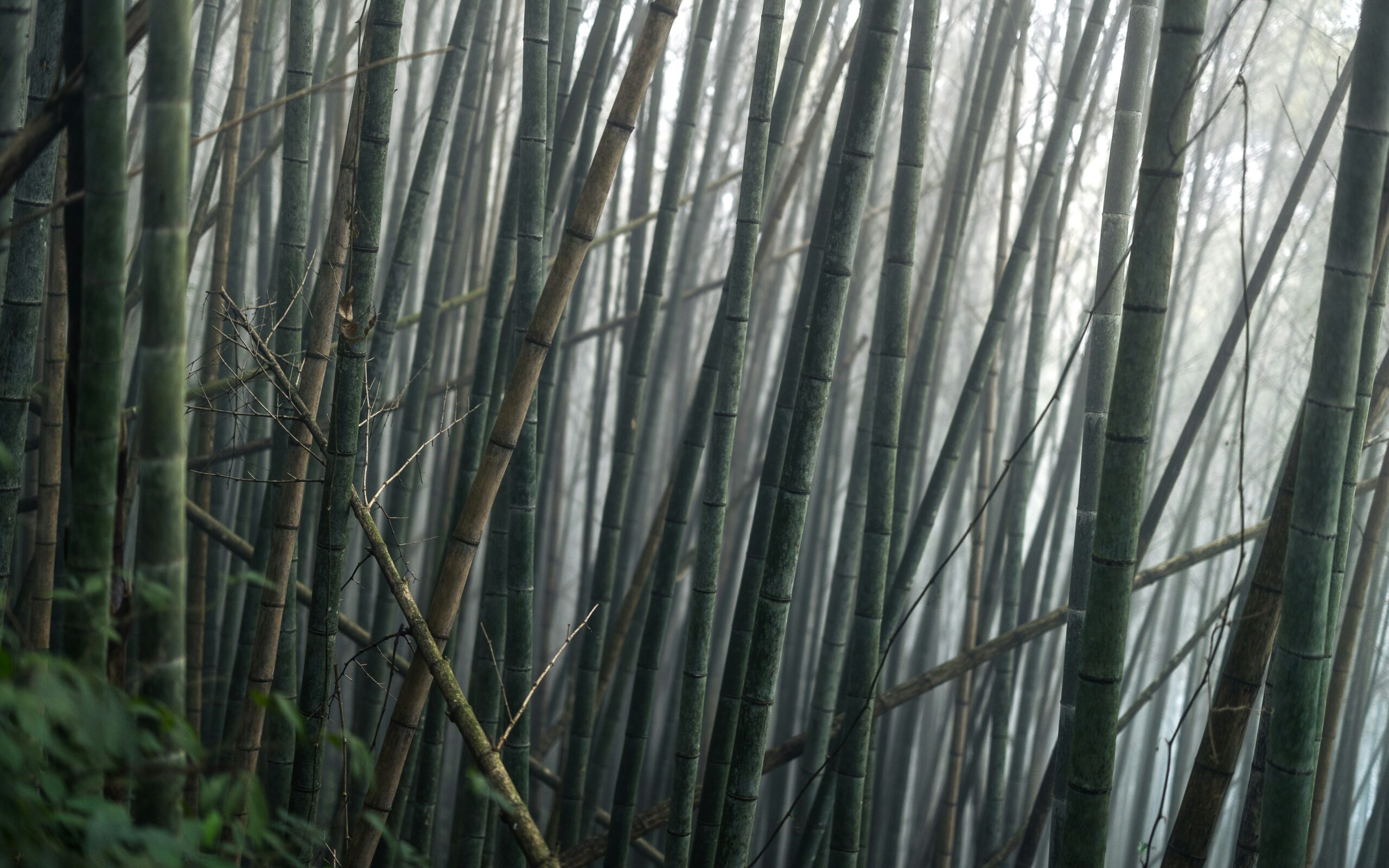
4. How to Prepare for a Kimono Photoshoot on a Rainy Day
a) Plan with flexibility
Kyoto’s weather can change quickly. Schedule your photoshoot early in the day and stay open to rescheduling within a few hours if the rain is too strong. Light rain or drizzle actually creates the best atmosphere.
b) Bring backup essentials
Small towel
Transparent or wagasa umbrella
Waterproof bag for personal items
Hairpins and retouch powder
c) Coordinate with your photographer
Professional photographers know how to use reflections, light, and color balance to turn rain into art. At AllPhoto Kyoto, our photographers specialize in adjusting composition and exposure to capture the mood — not fight it.
5. The Emotional Power of Cloudy-Day Photography
Rainy days in Kyoto awaken a unique emotion: wabi-sabi — the Japanese philosophy of finding beauty in imperfection and transience.
Wearing a kimono in the rain connects you to centuries of tradition. Imagine geishas hurrying along Pontocho Alley beneath oil-paper umbrellas, or samurai walking through misty temple gardens. That same melancholy grace lives on in your photos.
The droplets on your umbrella, the soft breeze lifting your sleeve — these are more than aesthetic details; they’re poetry captured in motion.
6. Tips for Posing Naturally in the Rain
Hold your umbrella slightly to the side to reveal your face and upper kimono design.
Walk slowly — the natural rhythm of your steps creates elegant movement in photos.
Interact with the environment: touch the bamboo, look up at the falling rain, or watch your reflection in the puddles.
Smile softly — a serene expression matches Kyoto’s gentle atmosphere.
7. What to Do After Your Photoshoot
After your session, warm up in one of Kyoto’s charming cafés or tea houses nearby:
% Arabica Higashiyama: Iconic coffee shop near Yasaka Pagoda.
Gion Tsujiri: Matcha parfaits and hot tea for cozy post-shoot comfort.
Kissako Wazuka: A hidden gem for authentic Japanese sweets.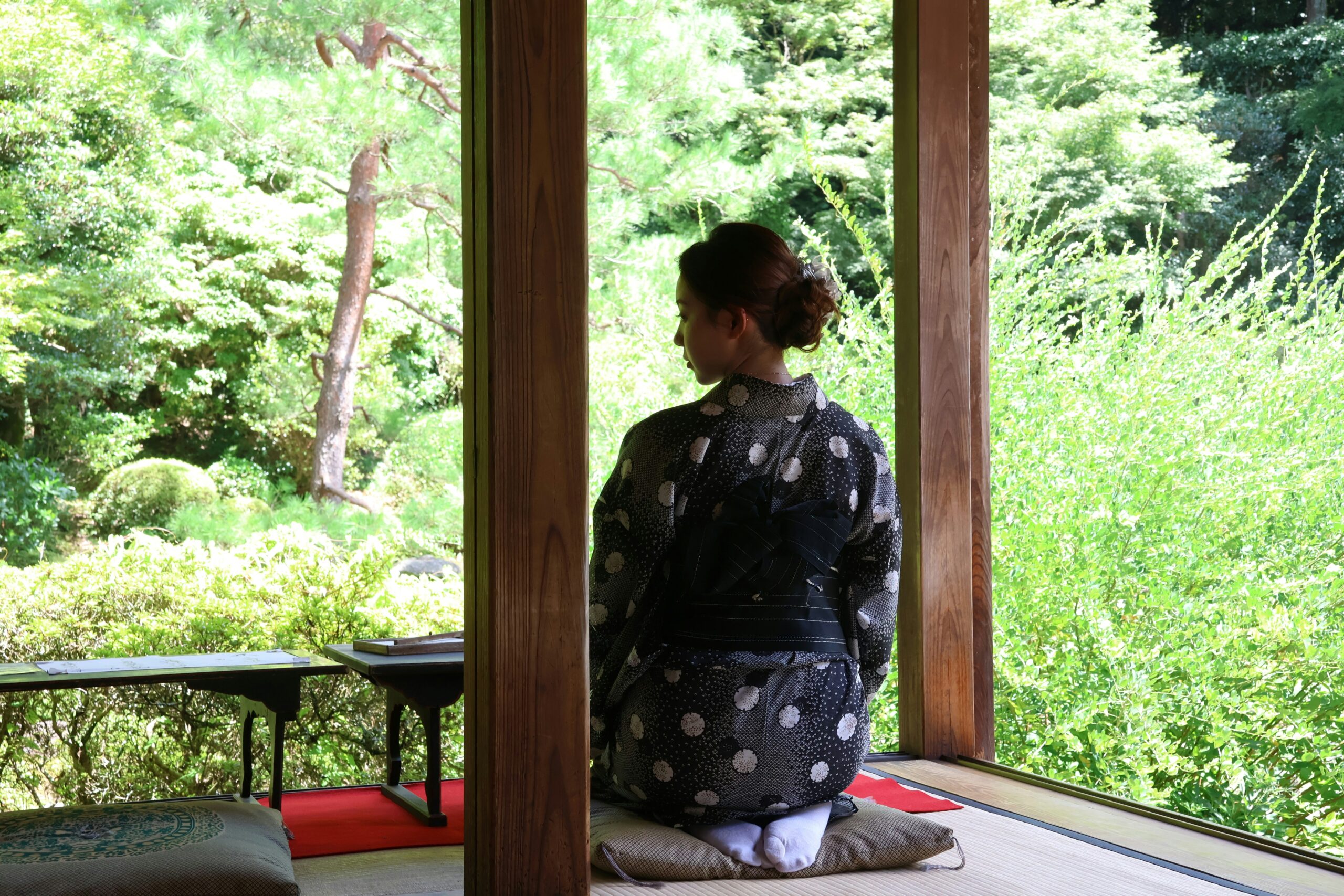
Relax, review your photos, and let the experience sink in. You’ve just lived a moment of true Kyoto elegance.
8. Why Choose AllPhoto Kyoto for Rainy-Day Shoots
Local Expertise: Our team knows every hidden alley and scenic corner of Kyoto.
Kimono Coordination: We provide styling advice based on weather and light.
Professional Editing: We enhance color tones while keeping the atmosphere natural.
Flexible Scheduling: Rescheduling is always possible in case of heavy rain.
At AllPhoto Kyoto, we don’t chase perfect weather — we capture perfect emotions.
9. Final Thoughts: Let Kyoto’s Rain Tell Your Story
Kyoto isn’t just a city; it’s a living poem. The rain doesn’t wash away its beauty — it reveals it.
When you walk through its ancient streets wearing a kimono, every droplet tells a story of time, nature, and grace. Whether you’re visiting for a day or celebrating a special occasion, embrace the weather as part of your experience.
And when you’re ready to immortalize that moment, let AllPhoto Kyoto help you turn cloudy skies into unforgettable memories.


コメント